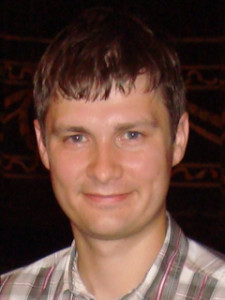 Ass.-Prof. Dr. Kostyantyn Shchekotykhin | Mi, 28.05.2014 | 17:00-18:30, HS 2
Ass.-Prof. Dr. Kostyantyn Shchekotykhin | Mi, 28.05.2014 | 17:00-18:30, HS 2
Abstract: Effective debugging of knowledge bases is an important prerequisite for their broad application, especially in the areas that rely on everyday users which create and maintain knowledge bases such as the Semantic Web. In many cases users have different views of a domain, i.e. which knowledge about the domain has to be captured in a knowledge base and how it should be represented. Inappropriate usage of terms together with natural complications when formulating and understanding logical descriptions may result in faulty knowledge bases.
Recent approaches to debugging of knowledge bases use diagnosis methods to identify causes of the faults. In most debugging scenarios there are multiple explanations for a fault and, therefore, many diagnoses can be found by a debugger. In this case, localization of a fault, i.e. selection of the target diagnosis, must be done manually.
In this talk we present an interactive debugging approach which automatically identifies the target diagnosis by performing a sequence of queries to a user. That is, the system uses discrepancies between different fault explanations to generate a query to a user: whether or not some logical sentence must be implied by a knowledge base a user is going to create. Due to an impossibility of a user to provide answers to all existing queries, the debugger can use a variety of query selection strategies applied in active learning and select the most informative ones. This allows to minimize the number of queries required to localize a fault and simplifies debugging of knowledge bases in general.
This talk is part of / dieser Vortrag ist Teil der Ringvorlesung Informatik und Informationstechnik SS2014.




